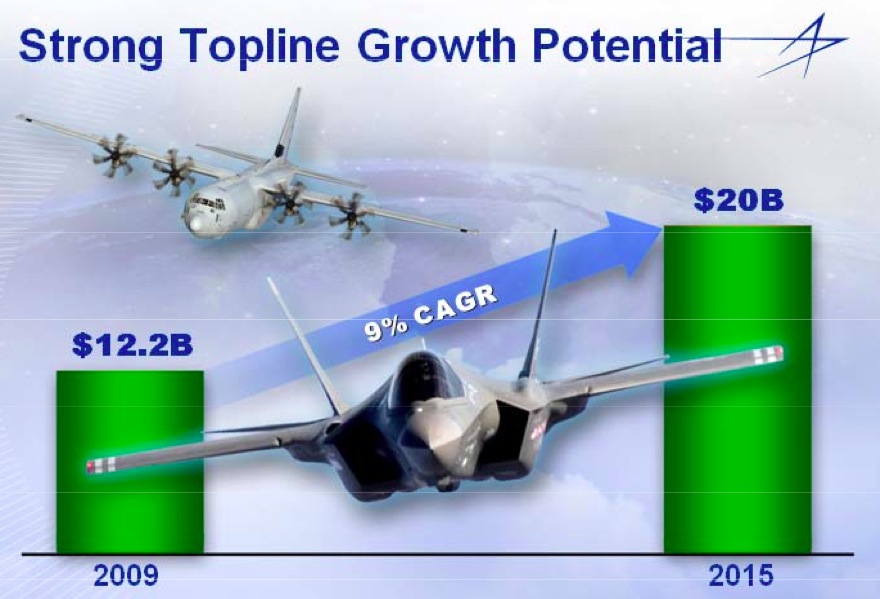Here’s what a “challenging DoD environment” looks like to Lockheed Martin’s aerospace division:

This slide is part of a presentation by Lockheed executives today at an investment banking conference hosted by Credit Suisse in New York.
The threat of Defense Department budget cuts may pose a “challenge” to America’s largest military contractor, but it’s nothing compared to the challenges faced by the rapidly swelling ranks of unemployed—including the 10,000 Lockheed employees slated to lose their jobs this year.
According to the US Congressional Budget Office,
the unemployment rate will be higher between 2010 and 2014 than it estimated last August, in part because…the dislocations in labor markets caused by the recession now appear to be more pervasive than previously estimated.
Not only is the situation worse than officials assumed, government economists now say things won’t return to “normal” for another decade, as far as the average wage-earner is concerned:
In CBO’s forecast, the persistently elevated level of unemployment depresses labor income in 2010. … [By] 2020, [CBO expects labor income] to approach the share of [gross domestic product] that prevailed, on average, between 1979 and 2008.
So much for progress.
Will this estimate, too, prove too rosy? It depends. It depends in large part on what the government decides to do.
Some 1.4 million Americans will lose their unemployment benefits by Christmastime, if Congress doesn’t approve another extension, expected to cost $56 billion. Those benefits provide, for most recipients, a subsistence-level income.
 Perhaps Lockheed Martin, which returned $2.3 billion to shareholders in the first three quarters of this year, could help cover the cost of the extension?
Perhaps Lockheed Martin, which returned $2.3 billion to shareholders in the first three quarters of this year, could help cover the cost of the extension?
Perhaps Bruce L. Tanner—Lockheed’s CFO, who delivered this morning’s presentation, and made $7 million last year—could pay a slightly hire income tax rate?
What could be more patriotic? After all, his company owes 85 percent of its business to the US government and thus, to the taxpayers—including to those thousands of laid-off Lockheed workers who will pay taxes on their unemployment benefits.
Then, maybe, Congress could redirect some of the $159 billion that’s set aside this year for “overseas contingency operations.” Two wars’ worth of budget savings could be used to prevent millions more Americans from sliding into the trap of generational poverty.
I know, it sounds crazy. Without high unemployment and generational poverty, where would all the new recruits come from? And what would happen to Lockheed’s “strong topline growth potential”?